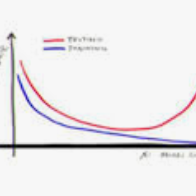How to effectively leverage the plentiful existing datasets to train a robust and high-performance model is of great significance for many practical applications. However, a model trained on a naive merge of different datasets tends to obtain poor performance due to annotation conflicts and domain divergence.In this paper, we attempt to train a unified model that is expected to perform well across domains on several popularity segmentation datasets.We conduct a detailed analysis of the impact on model generalization from three aspects of data augmentation, training strategies, and model capacity.Based on the analysis, we propose a robust solution that is able to improve model generalization across domains.Our solution ranks 2nd on RVC 2022 semantic segmentation task, with a dataset only 1/3 size of the 1st model used.
翻译:如何有效地利用丰富的现有数据集来训练一个稳健和高性能模型,对于许多实际应用具有重大意义。然而,由于注释冲突和领域差异,一个经过培训的关于天真合并不同数据集的模型往往业绩不佳。我们试图在本文件中培训一个统一模型,预期该模型将在几个广受欢迎的分化数据集上各不同领域很好地发挥作用。我们从数据扩增、培训战略和模型能力的三个方面,对模型一般化的影响进行详细分析。我们根据分析,提出了一个强有力的解决方案,能够改进跨域模型的通用性。我们的解决方案在RVC 2022语义分化任务中排名第二,使用的第1个模型的数据集只有1/3大小。



